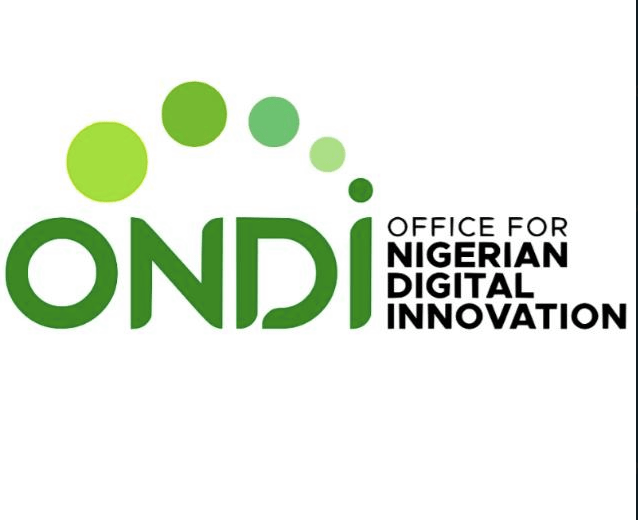PPPs: An Effective Strategy for Increasing Digital Skills and Infrastructure
By Inyene Ibanga
TECHDIGEST – The eighth edition of the Information Communication Technology (ICT) Expo happened in Lagos between August 31 and September 1, 2022, with the theme “Ensuring Efficient Digital Infrastructure in Nigeria.” Stakeholders at the event acknowledged that the lack of sufficient digital infrastructure could obstruct the projected growth of the digital economy.
Highlighting the role of digital infrastructure as a vital requirement for achieving socio-economic and technological development, the stakeholders appealed to the federal and state governments to intensify efforts toward providing adequate digital infrastructure. They emphasized the multiplier effects of an effective and efficient digital infrastructure on national development.
As the information technology (IT) sector developer and regulator in Nigeria, the National Information Technology Development Agency (NITDA) has been a leading advocate of PPP for the development of digital infrastructure. The agency, through its Director-General, Kashifu Inuwa, has always maintained that establishing a productive PPP structure is critical to achieving a sustainable digital Nigeria. This is evident in the various collaborative initiatives and programs that NITDA is implementing efficiently through its subsidiaries, the Office for Nigerian Digital Innovation (ONDI) and the National Centre for Artificial Intelligence and Robotics (NCAIR).
While NCAIR is a state-of-the-art facility established to promote research and development on digital innovation and emerging technologies, ONDI was created to support startups by connecting them with the right people, the right resources, and the right opportunities. The Office works with relevant local and foreign organizations to implement the NITDA Strategic Roadmap and Action Plan to promote digital innovation and entrepreneurship while also ensuring indigenous content development.
READ ALSO: Finally, Elon Musk Restores Trump’s Twitter Account
NITDA, alongside its subsidiaries, is collaborating with private organizations such as Microsoft, Cisco, Google, Mass Challenge, JICA, Coursera, and DWTC, as well as government bodies like the NNPC, CBN, ICPC, and NCDMB to strengthen the startup ecosystem and achieve the Digital Nigeria Agenda. These partnerships are being actualized through flagship initiatives like Bridge To Mass Challenge, iHatch Startup Incubation, Next Innovation with Japan (NINJA) Accelerator, and the North East Startups Training, to name a few. These and many other initiatives are employed to equip Nigerians with relevant digital skills under its Strategic Roadmap and Action Plan (SRAP) in consonance with the National Digital Economy Policy and Strategy (NDEPS).
Through its most recent partnership with Ascend Studios Foundation, the agency has launched the Creative Technology Programme (CTP) 2022 to develop and retain creative technology talents in Nigeria for the purpose of promoting career skills and providing job opportunities for beneficiaries. Participants will gain new skills to help grow their ventures and create a robust network for sharing ideas and experiences. Indeed, this partnership is crucial to enable Nigeria’s digital and creative sector to partake in the estimated $2.253 trillion global creative economy.
Digital technology has become an integral part of the way we live, work, and interact with others and the world around us. Digital transformation is on the rise and affecting every sector of the economy. As technology evolves, the need for the acquisition of digital skills cannot be overemphasized. In the same vein, the availability of sufficient digital infrastructure is a major driver of the successful digital transformation of advanced economies.
Digital infrastructure refers to both physical things and those supporting information technologies that provide basic services that are essential to economic activities and quality of life. They include the internet backbone, fixed broadband, network booster stations, data centers, communications satellites, digital devices, software, and applications, among many others.
However, infrastructural deficits have continued to impede progress in Africa due to dwindling budgetary allocations. The COVID-19 crisis worsened the situation as funding was channeled into managing the raging crisis. Africa’s developing economies require investment in digital infrastructure for the continent to thrive in the aftermath of the pandemic because the need for adopting digital technology has become more prominent.
For Nigeria, the public-private partnership (PPP) model is a viable alternative to guarantee the development of the much-needed digital infrastructure required to boost the country’s economic growth. So, the need for PPP in the provision of digital infrastructure in the country is important. Substantial and rapid investments in digital infrastructure are inevitable for Nigeria’s economy to hold a competitive advantage.
PPP involves any form of partnership, whether contractual, corporate, or collaborative. According to the World Bank, PPP is a long-term contract between a private party and a government agency for providing a public asset or service, in which the private party bears significant risk and management responsibility. The private sector could be responsible for the project’s financing, design, construction, operation, management, and maintenance.
Well-coordinated partnerships present opportunities to bring together the resources, expertise, and powers available in ways that either sector cannot achieve on its own. When implemented in a balanced regulatory environment, PPPs can bring greater efficiency and sustainability to the provision of IT and telecommunications services, whose ripple effect will positively drive innovation in energy, transport, water, education, healthcare, and all forms of business and recreational activities.
The Ministry of Communications and Digital Economy, as well as its agencies, should remain focused on planning and delivering more favorable PPPs to ensure the development of critical digital infrastructure for Nigeria’s economic growth.
To ensure that private investment is used to address the digital infrastructure deficit and improve public services in accordance with the government’s commitment to transparency and accountability, a strong synergy between the Infrastructure Concession Regulatory Commission (ICRC) and ICT sector agencies is required. It will encourage interested members of the organized private sector to support the government’s PPP initiative to increase digital infrastructure for the successful implementation of the digital economy.
Inyene Ibanga is with the Corporate and Communications Unit, Office for Nigerian Digital Innovation (ONDI).
















